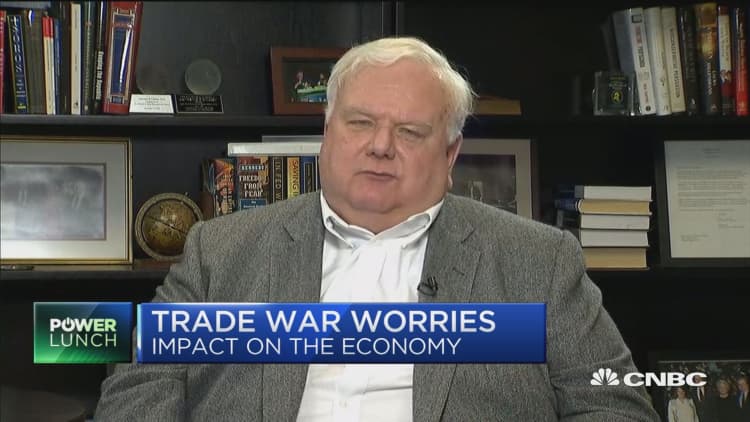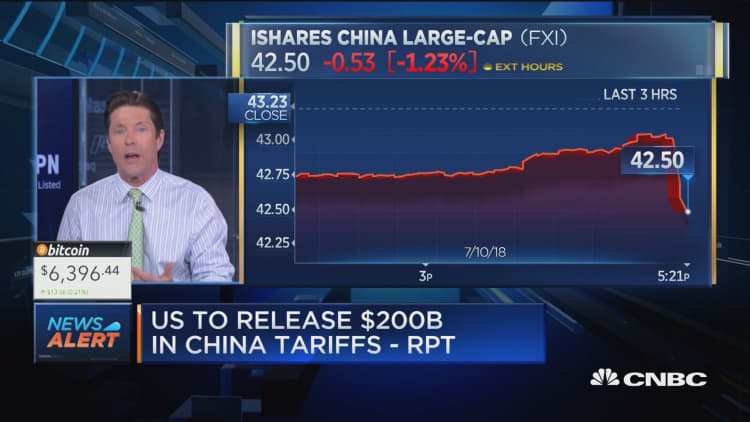
While there is a concern that the trade dispute between the United States and China could escalate, Larry Lindsey, former economic advisor for President George W. Bush, told CNBC Tuesday he thinks that’s unlikely to happen.
Instead, he said, it is in the best interest of President Donald Trump and China's President, Xi Jinping, to “find a way out of this.”
“You start with a baby step,” said Lindsey, who served as director of the National Economic Council from 2001-2002.
“There’s likely to be at least a cease-fire coming pretty soon. We’re not going to ever remove every issue with China. But I do think we may see people back off pretty soon,” he said on “Power Lunch.”
Trade rhetoric has been heating up between the two countries. The latest salvos came last Friday, when the Trump administration’s tariffs on $34 billion worth of Chinese goods took effect. China then fired back with retaliatory tariffs on $34 billion worth of U.S. goods, including soybeans and pork.
Trump also expects to soon add a further $16 billion in tariffs and will consider up to hundreds of billions of dollars more in duties.
However, Lindsey said that so far, the size of the tariffs has been “very, very small.”
He’s also not concerned that the Federal Reserve will have to step in to respond, he said, and predicts it will stick with its plan. The central bank raised interest rates in March and June and said it anticipates two more raises this year.
“The economy would have to get really, really bad for the Fed to change from that,” Lindsey said. “Unless something cataclysmic happens on the trade front, I don’t think that’s very likely. The size of the tariffs really are not that big relative to the size of the economy.”
Scott Minerd, global chief investment officer at Guggenheim Partners, has a different view. He told CNBC on Monday he’s concerned that tariffs will result in higher inflation, which will push the Fed to continue its tightening or even pick up the pace of interest rate hikes.
“Investors are just ignoring the consequences and what’s going to have to be done in terms of Federal Reserve policy to offset the inflationary pressure that’s going to come out of tariffs,” he told “Closing Bell.”
WATCH: Trump to release $200B in new China tariffs, according to report



